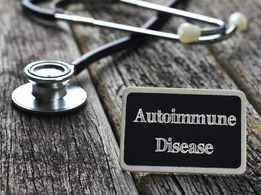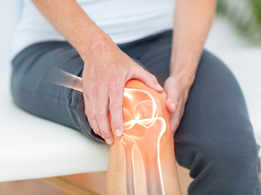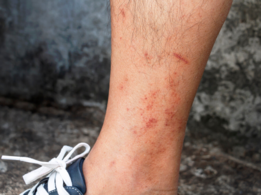Coronavirus test: Can you get a COVID-19 test done for yourself?
TIMESOFINDIA.COM | Last updated on - Sep 8, 2020, 14:43 ISTShare fbsharetwsharepinshareComments (0)
01/8How to get a COVID test done
)

India is now the second-worst affected nation struck by the pandemic. Awareness of symptoms early on and increased testing are the two keys to fighting the pandemic. Increased testing has also helped several cities in India turn the tide over in the COVID battle. Anyone found to be suffering from the symptoms of the viral infection has been urged to get tested on priority. But, getting a test done can be a tricky procedure. Unlike some other common tests or antibody tests, COVID testing could only be done at specific centres, only after you get a doctor's approvals. Or, only the ones identified through contact testing, carrying a high-risk for infection or suffering from SARI (Severe Acute Respiratory Illness or Influenza) were prioritized for testing. Asymptomatic patients were not tested as well.
02/8Testing delays can fuel transmission
)

Apart from this, individual state-devised policies extended the gaps between diagnosis and delays. However, the newest change in testing guidelines will now allow more individuals to get screened for COVID-19 and fight the pandemic.
03/8ICMR revises COVID-19 testing protocols
)

Indian Council of Medical Research (ICMR), in its latest briefing, relaxed the rules for COVID-19 testing, advising authorities to start testing all people living in containment zones as well as start testing on demand- which would imply that we would no longer need a doctor's prescription to get a test done.
Not only would this make it easier to identify potential infection cases more quickly, but it would also allow normalcy to return in places that require people to get a negative COVID certificate before entry.
04/8What is on-demand testing?
)

Wide testing guidelines would now allow asymptomatic individuals to get a test done for themselves.
Apart from allowing all individuals to freely get a test done for themselves, ICMR's advisory also noted that testing protocols should also be prioritized for people who fall under the following categories:
-Asymptomatic patients in need of acute surgery or procedure
-High-risk contacts
-Those with acute respiratory infections
-Suffering from influenza
(Representational image used)
05/8When is the right time to get tested?
)

One of the biggest doubts that cloud COVID diagnosis is that the symptoms often feel too similar to that of other respiratory infections, such as cold, or the flu. With the monsoon and arrival of dengue season, it can get confusing to know whether the infection you are suffering from is COVID-19.
We called the national COVID helpline number (+91-11-23978046) to learn a few details confirmed:
06/8Who should get tested?
)

While individual and on-demand testing has been given the go-ahead, doctor or medical discretion is still advised.
According to officials, not every cough or fever is a COVID infection, hence, a test should only be taken if you don't feel the symptoms subside 2-3 days after taking medications and considering doctors' advise.
Currently, it is advised that patients with symptoms of cough or cold should only get prescribed medication from a doctor. Self-medication is strictly not advised. If symptoms persist after 3 days, or you notice other visible symptoms such as headaches, loss of smell or taste, gastrointestinal issues, doctors advise should be considered before going for a test.
07/8Where can you get a screening done?
)

COVID testing is available at both government and private facilities. However, in case you need to get a test done, make sure the hospital, clinic or laboratory is ICMR certified.
As guidelines suggest, testing might be prioritized for patients with a higher risk for infection, or pre-existing conditions will be attended to at first.
08/8How frequently can one get tested?
)

Once a person recovers from COVID-19, he/she gains enough antibodies to stay immune from the infection, for a while. An antigen test can confirm that. For those undergoing treatment, it is recommended that re-testing is not necessary prior to discharge.
An RT-PCR test (molecular reverse polymer test to detect viral load) is considered to be the most reliable and effective tool for diagnosis.
ICMR guidelines also dictate that if an asymptomatic person tests negative on an antigen test, they should follow it with an RT-PCR test.



































































![[Gym] Leg Training (voice-over with tips)
[Gym] Leg Training (voice-over with tips)](https://static.toiimg.com/thumb/77056786.cms?width=147&height=86)











closecomments
SIGN IN WITH
FacebookGoogleEmail